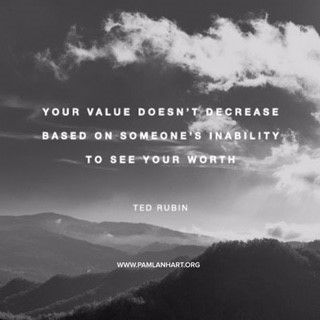The concept of intrinsic value stems from the idea that every human being has value because we’re created in God’s image. Nothing negates that image and the value it instills in every human being, nothing. Every human bears that value throughout his or her life. You may not believe in God the exact way that I believe, but humanity dictates that every person has value.
We look at the 10 fingers and 10 toes and love fills our hearts. We overflow with the goodness that comes from this little life that was given to us. Of course we love our babies without abandon, without condition.
The greatest human need that we have is to love and be loved.
The greatest human need that we have is to love and be loved.
I loved my children. I truly thought that I loved them unconditionally. But as I’ve traveled this journey of substance use in our family I have realized looking back that inadvertently my messaging became very performance driven. I was a mom who gave up a lucrative career to raise my children. It was my full-time job to make sure that my kids succeeded. And doesn’t society tell us that we should praise our children when they do well? Of course we do that.
The problem starts to occur when their success becomes our identity. When our kids do well, we are happy. When our kids do poorly we end up angry, frustrated or depressed. When our kids do well we feel like we have lived out our purpose and value in life. When they don’t do well, we feel like a failure.
Because we are like a mirror for our kids, we inadvertently send this message that they are the cause of our anger, frustration and depression. This is especially true when any kind of substance use enters families. Our loved one’s identity because their behaviors.
When our identity becomes intertwined with our actions, we end up either living in a state of narcissistic grandiose or living in a state of shame. Neither is a healthy place to live. When my son started exhibiting the symptoms of his disease, I took that on as my failure and I felt shame. I then inadvertently heaped that shame on my son. His first program was in a reputable treatment center where the notion was hammered into him at the age of 15 that he was an addict. So my son’s identity became his addiction and in the process, because human nature is what it is, he was instantly de-valued as the person he was created to be. It wasn’t intentional. I certainly didn’t mean to send that messaging. But everything about our relationship became what he had to do. “You have to go to this many meetings. You have to go to this therapy. You have to stop using drugs and alcohol. You have to believe a certain way.” And our relationship was weighted by how well he did at checking off the boxes on his list. If he checked off more boxes, he was more valued. If he couldn’t manage some of those tasks he had failed. As the use disorder became ore significant the feelings of failure only increased. And he took that on as his identity.
I don’t think I truly understood this until I went on a mission trip to Ethiopia. These people lived in poverty. They existed hand to mouth, from one meal to the next. They would never hold a job. They would never go to college. They would never contribute productively to society (in the way we would think they should) yet they had value. I could see the value in their eyes when I looked at them. Then I started working with the chronically mentally ill and addicted. The truth is, many of the people that I interact with may never get sober, have a home or maintain the kind of lifestyle that is the standard in our country. But if I am called to loving well, I am called to love them just as they are, not as I think that they should be, simply because they are human beings.
So if that is the case, what about my children? My family?
As I’ve grown in my own recovery, I have realized how much my own identity was tied to what I did or didn’t do. I was a runner, I was a mom, I was a wife, I was a successful sales person. So when things became difficult or didn’t go as planned, my identity became the failures. This realization woke me up to the fact that I was sending that same message to my son. He was the charismatic one, he was the athlete, he was the risk taker and then….he was the difficult one, he was the one who struggled, he was the dishonest one, he was the thief, he was the addict. He BECAME the symptoms of his disease. And what if? What if he never got better? Would that change his need to be loved? And would that change my mandate to radically love him without condition?
Only when we can understand our own intrinsic value in relationship to our creator, are we able to pass this along to other people. Our identity is not the sum of our successes or failures. We have value regardless of what we do or do not do. And once we can grasp that concept, that we are loved fully and completely simply because we are humanity, we are able to see our loved ones in that same light, as loved and valued, not because they do or do not get sober. But simply and radically because they are humans with a soul and a spirit, just like us. Because they long to love and be loved
Copyright @ v2018 Our Marvelous Mess


